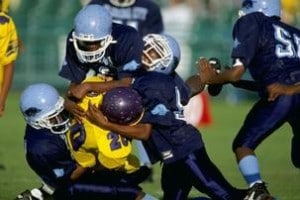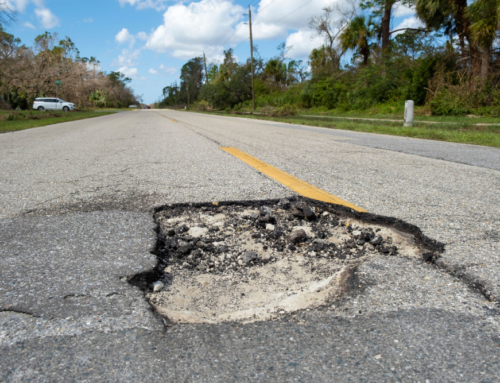When it comes to kids and sports, all parents fear injury. Well, as it turns out, they’re right to worry. According to an ESPN article from 2013, more than 21 million children and teens are playing organized sports in the United States. That’s a huge number! Not every kid quits due to injury, but a large percentage of kids who stop playing sports do. According to the same report, 27% of girls and 29% of boys quit due to an injury or health problem acquired from sports.
 In fact, thousands of kids are treated for sports injuries every day. 2..7 million children were treated for injuries from 2001 to 2009 with a 62% increase of children under age 19 treated for traumatic brain injuries. Football is one sport that has come under scrutiny for children, teens, and even adults playing at the college or professional level due to the amount of traumatic or even life-ending injuries that were occurring. Concussions have also received a lot of attention– as they should. Concussions from children playing football more than doubled among children aged 10 to 14 from 2000 to 2010.
In fact, thousands of kids are treated for sports injuries every day. 2..7 million children were treated for injuries from 2001 to 2009 with a 62% increase of children under age 19 treated for traumatic brain injuries. Football is one sport that has come under scrutiny for children, teens, and even adults playing at the college or professional level due to the amount of traumatic or even life-ending injuries that were occurring. Concussions have also received a lot of attention– as they should. Concussions from children playing football more than doubled among children aged 10 to 14 from 2000 to 2010.
There’s no denying that sports are a large part of children and teen’s lives. They provide discipline, exercise, and skills that will last them a lifetime. These figures may not be immediate cause for you to pull your children from sports, but they are a reminder that safety rules, wearing protective gear, and being aware of the symptoms of a head injury from sports can be invaluable. Learn how to recognize the signs so that you can immediately go to a hospital instead of writing the signs off.
Symptoms of a concussion may include:
- Headaches
- Dizziness
- Amnesia around the event
- Trouble concentrating
- Confusion or foggy feeling
- Slurred speech
- Delayed responses to questions
- Fatigue
- Nausea or vomiting
- Tinnitus (ringing in the ears)
- Memory/concentration problems
- Sleep disturbances
- Personality changes
- Depression, psychological adjustments
- Issues with taste or smell
If you think you recognize any of these symptoms after your child has suffered a traumatic event, take them to get immediate medical attention. It is not better to wait and see when it comes to a head injury; the time you spend waiting to see if it is fine could cause serious damage or even lead to life-threatening complications. Any head injury should be evaluated by a medical professional, even if there are no symptoms of a concussion present. When it comes to concussions or any type of head injury in sports, it is always better to be safe than sorry.
You can also make sure that your child is safe by paying attention to sports injury and concussion safety information. Be sure to talk to them about proper warmups, sports safety, proper hydration, and the danger of head injuries. Be sure to have them let you know if they have sustained any type of injury while playing and educate them on the importance of safety in sports.
You may also be eligible to win a court case. If you or someone you know has been involved in a sports injury, consult an experienced personal injury lawyer with The Law Offices of Payas, Payas, and Payas today.








